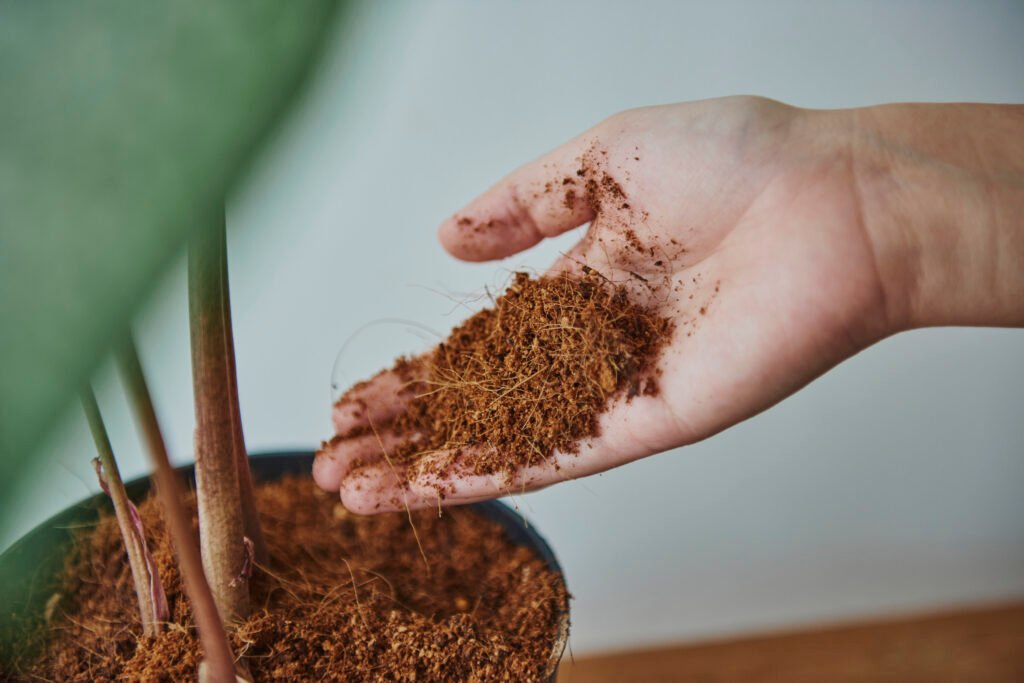
The Ultimate Guide to Growing Plants with 100% Cocopeat: A Sustainable Gardening Solution
As gardening continues to evolve, so do the materials and methods we use to cultivate our green spaces. Among the innovative solutions available, cocopeat has emerged as a game-changer. This organic, sustainable material offers a unique way to grow plants without relying on traditional soil. If you’re curious about how a 100% cocopeat solution can revolutionize your gardening, read on!
What is Cocopeat?
Cocopeat, also known as coir pith, is a byproduct of coconut processing. It’s the fibrous, sponge-like material that remains after extracting coir fibers from coconut husks. Cocopeat is highly valued for its excellent water retention, aeration, and nutrient-holding capacity, making it an ideal growing medium for a variety of plants.
Benefits of Using 100% Cocopeat
Sustainability: Cocopeat is an eco-friendly alternative to peat moss, which is harvested from sensitive bog ecosystems. By choosing cocopeat, you’re supporting sustainable agricultural practices.
Water Retention: One of cocopeat’s standout features is its ability to retain moisture. It can hold up to 10 times its weight in water, ensuring your plants remain hydrated even in dry conditions.
Aeration: Cocopeat’s structure provides excellent aeration to plant roots, preventing soil compaction and promoting healthy root growth.
pH Neutral: Unlike other growing mediums, cocopeat has a neutral pH, which means it’s suitable for a wide range of plants without the need for extensive pH adjustments.
Reusability: Cocopeat can be reused multiple times, making it a cost-effective solution for long-term gardening.
How to Grow Plants with 100% Cocopeat
Preparation: Cocopeat typically comes in compressed blocks. To use it, you’ll need to rehydrate it by soaking the block in water. As it absorbs water, it will expand to several times its original size. Fluff it up with your hands to create a light, airy growing medium.
Planting: Whether you’re starting seeds or transplanting seedlings, 100% cocopeat is an excellent choice. Fill your containers or garden beds with the rehydrated cocopeat, and plant your seeds or seedlings as you would in regular soil.
Watering: Since cocopeat retains moisture so well, you’ll need to adjust your watering habits. It’s important not to overwater, as the cocopeat will already be holding onto a significant amount of moisture. Check the moisture level by feeling the cocopeat; water only when the top layer feels dry.
Fertilizing: While cocopeat is excellent at retaining nutrients, it doesn’t naturally contain many nutrients on its own. You’ll need to supplement with organic fertilizers or compost. Regular feeding will ensure your plants receive all the necessary nutrients for healthy growth.
Maintenance: Keep an eye on your plants and cocopeat. Over time, the structure of cocopeat can break down, especially after several growing cycles. If you notice compaction, mix in some fresh cocopeat or other organic materials to maintain aeration.
Types of Plants That Thrive in Cocopeat
Cocopeat is versatile and can support a wide range of plants. Here are some examples:
- Vegetables: Tomatoes, peppers, cucumbers, and leafy greens grow well in cocopeat.
- Herbs: Basil, mint, cilantro, and parsley thrive in this medium.
- Flowers: Petunias, marigolds, and impatiens bloom beautifully in cocopeat.
- Houseplants: Cocopeat is excellent for houseplants like ferns, spider plants, and peace lilies.
Troubleshooting Common Issues
- Overwatering: With cocopeat’s water retention capabilities, it’s easy to overwater. Always check the moisture level before adding more water.
- Nutrient Deficiencies: Since cocopeat is nutrient-poor, regular feeding with organic fertilizers is essential. Watch for signs of nutrient deficiencies, such as yellowing leaves, and adjust your feeding schedule accordingly.
- Algae Growth: If the surface of the cocopeat remains too wet, algae can form. Ensure proper drainage and avoid overwatering to prevent this issue.
Conclusion
Growing plants with a 100% cocopeat solution is a sustainable, eco-friendly, and effective method for gardeners of all levels. Its ability to retain moisture, provide aeration, and support healthy root growth makes it a standout choice for anyone looking to create a thriving garden. Whether you’re cultivating vegetables, herbs, or ornamental plants, cocopeat offers a reliable and renewable option that can transform your gardening experience.
Ready to give it a try? Start your cocopeat garden today and watch your plants flourish like never before!
